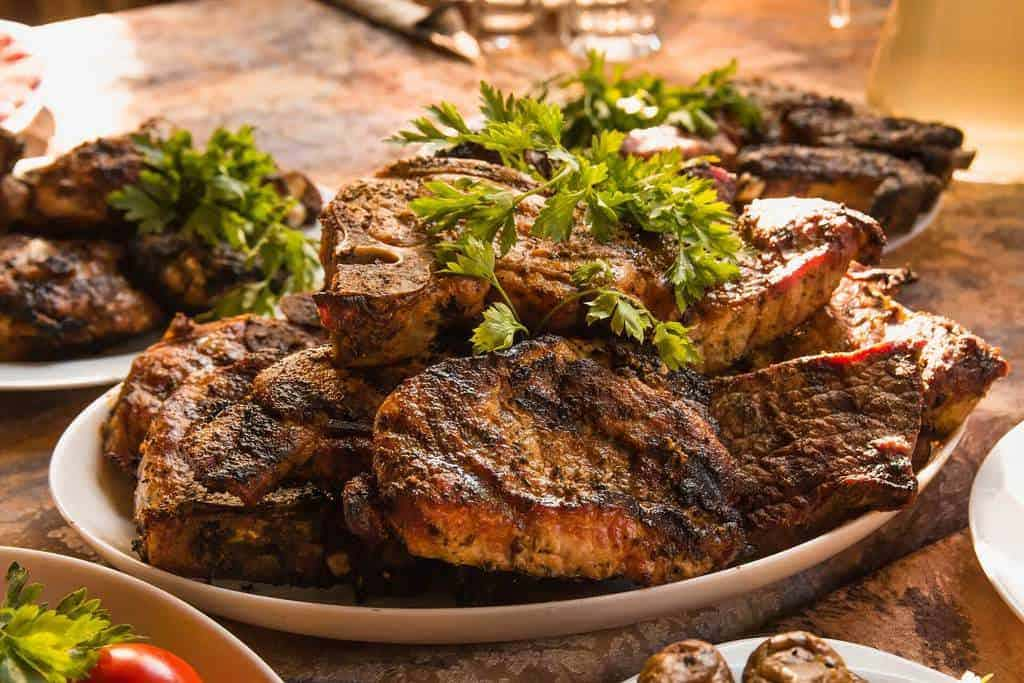As you get older, your health may be increasingly on your mind. Your diet is one of the first things you should address when looking at how you can maintain a healthy lifestyle.
Frustrated with food waste or don't know where to start with a shopping list? Try a food subscription box to wash those worries away and put your diet - and finances - on the right track!
Why Eat Less Meat?
As well as your health, adopting a more plant-based diet is better for the planet and your finances! The meat production sector uses a vast amount of water and contributes significantly to greenhouse gas concentration in the atmosphere. Growing and harvesting vegetables is more carbon neutral and less demanding on the earth’s natural resources.
Eating more veggie dishes also mean you can half the cost of your weekly food shop. Meat will typically take up a large chunk of your grocery bill. When you cut down on the meat you buy, you’ll also cut down on the money you spend.
There are also certain health conditions that you may aggravate due to meat consumption. If you eat a lot of red or processed meats, you may be at higher risk of:
- Gout
- Heart disease
- Poor digestion
- Increased cancer risk
A simple change in diet could save a lot of difficulty and health scares as you age. Vegetables contain minerals, fibres that help your heart, and antioxidants that are vital for fighting disease.
Charlie Hooson-Sykes from The Pickled Ginger told us: "Switching to a more plant based diet isn't only good for the environment, and often for your pocket, but has an effect on your health you may not be aware of. Adding soy beans, milk, or tofu to your diet has an impact on your menopausal symptoms (inciuding reducing hot flushes, and night sweats) as soy contains phytoestrogens - and it's a much more pleasant way to enjoy it in your diet rather than as a supplement. Adding more oats to your diet (or oat milk) can help lower your cholesterol.
"And all of this is so easy to do - switch out minced beef for soy mince or lentils in your spag bol or chilli (it also makes them quicker to cook). Swap out dairy milk for oat or soy. If you have a subscription meal box, make sure one or two of the options are veggie or vegan.
"It's better for a lot of us to do a little imperfectly, than a few of us doing a lot, to help our health, wealth and environment."
Vegetarian dishes are also often quicker to prepare. There are many one-pot recipes such as stir fry, curry, soup, veggie stew, and veggie roasts that are much faster to make as you only need to cook vegetables. In contrast to meat, slightly raw veg is not always the end of the world, either. It might even be better for you nutritionally!
Here are some useful tips to help you eat less meat.
Try Meatless Mondays
For some of you carnivores out there, completely cutting out meat may seem like an impossible task! So why not start small? Meatless Monday is a global initiative to encourage people to have a plant-based dish every Monday. It's fun to try out new recipes every week and expand on your list of go-to meals.
Roast for the Week
One way to reduce and moderate the amount of meat in your diet is to roast a piece of meat at the beginning of the week and then incorporate it into more vegetable-based dishes. Roast chicken is the healthiest choice and goes well with chicken salads for lunchtimes and pasta and risotto dishes for dinner. Adding mushrooms, peppers, tomatoes, or spinach to your left-over-chicken dish will make it pop!
Curry Curry Curry!
With so many fantastic flavours and spices, a vegetarian curry can be an excellent way to satisfy your meat craving. Chickpeas, lentils, beans, and squash are the perfect ingredients for a wholesome vegetarian curry dish. Make a sizeable portion so that you can snack on the leftovers throughout the week; this is a fantastic way to increase your veg intake!
Add to the Bookshelf
Meat alternatives and plant-based nutrition are in fashion right now. There is an array of plant-based cookbooks now available with delicious and creative ideas for vegetarian dishes. There is excitement among chefs about veggie trends, and they show their enthusiasm in their writing. Its healthier and something that many health experts, chefs and fitness professionals have been campaigning for over the years.
Get Online
Social media, websites, and streaming sites have loads of content on vegetarian and vegan dishes. These platforms are another fantastic way to get inspiration, and also for you to share your veggie ideas. The visual aspect of these platforms will also help when deciding on the dishes you want to prepare for the week. When someone asks you for the recipe you used, platforms such as Instagram and Facebook are great ways to share recipes and ideas with loved ones.
Challenge Yourself and a Friend
Embarking on any challenge is so much easier and more fun with a friend or family member to push you. Nothing is more fun than a friendly competition! Get your group of friends and challenge each other. Who can eat the least meat in a week or over a month? Swap recipes, share health results and enjoy a culinary awakening together.
There are plenty of great vegetarian party food ideas around, too. Host parties with your participating friends to show off veggie dishes you love; this is a fantastic way to keep the challenge social and fun!
Make Meaty Meals a Treat
There is no denying, a melt-in-your-mouth piece of lamb or a morning bacon sandwich are hard to compete with. Although there are many fantastic veggie alternatives, sometimes they just don’t cut it. Many people think vegetables and meat substitutes lack flavour. Some also feel such products aren’t filling enough. Making meat a treat for special occasions is a terrific way to limit your meat intake while still enjoying your favourite dishes on special occasions.
Plan Your Meals
When cooking more veggies, you must plan your meals for the week, for the simple reason that they spoil quicker. If you want to try out some new recipes and buy veg you would not usually buy, planning your week is best. Fresh produce is also healthier, as the veggies have less time to attract bacteria.
You may also decide to keep a selection of frozen vegetables in the freezer to make additions to meals depending on what you fancy.
We spoke to Choclette from Tin and Thyme, who told us: "Pulses are your friend. Beans, peas and lentils are full of protein, fibre and any number of other good things. They soak up flavours and are quite malleable too. Pretty much every cuisine features a range of pulse dishes. You can turn chickpeas into burgers, split peas into curries and you can make a really good dip out of any of them. Add beans or lentils to vegetable soups or stews, throw in some dumplings and you have a complete meal. And if you want something that seems familiar, whole brown lentils make a fabulous vegetarian shepherd's pie. They're relatively cheap too."
You can also access a variety of different cuisines when you plan your meals. For example, you could have Asian flavoured Tuesdays and Italian inspired Thursdays. The important thing is to have fun with it. The choice is yours!
Reducing your meat intake will improve your health, and make you feel fresh and lighter. A good amount of veg in your diet will reduce the risk of developing several long-term illnesses. Adding more vegetables to your diet will naturally reduce the amount of meat you eat anyway. Learning new recipes is fun and will get you to spend more time thinking of creative ways to spice up your veg. The goal is to enjoy the journey and have fun expanding your culinary repertoire.









